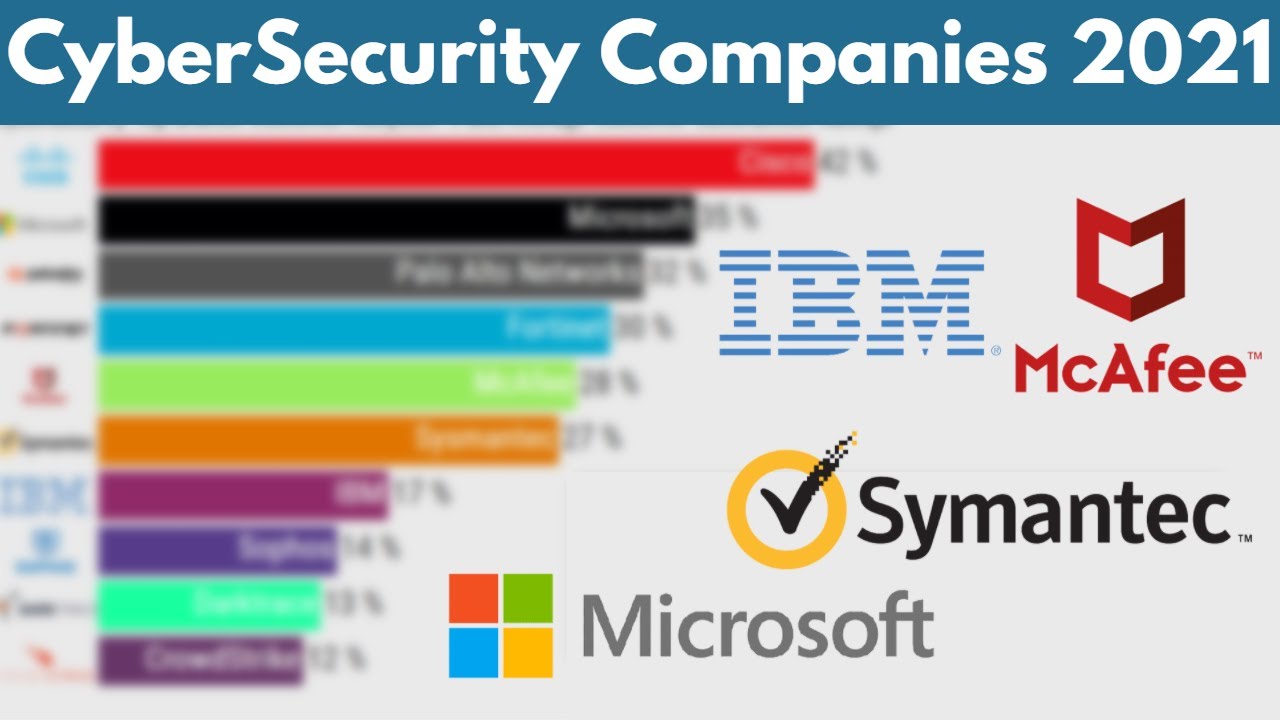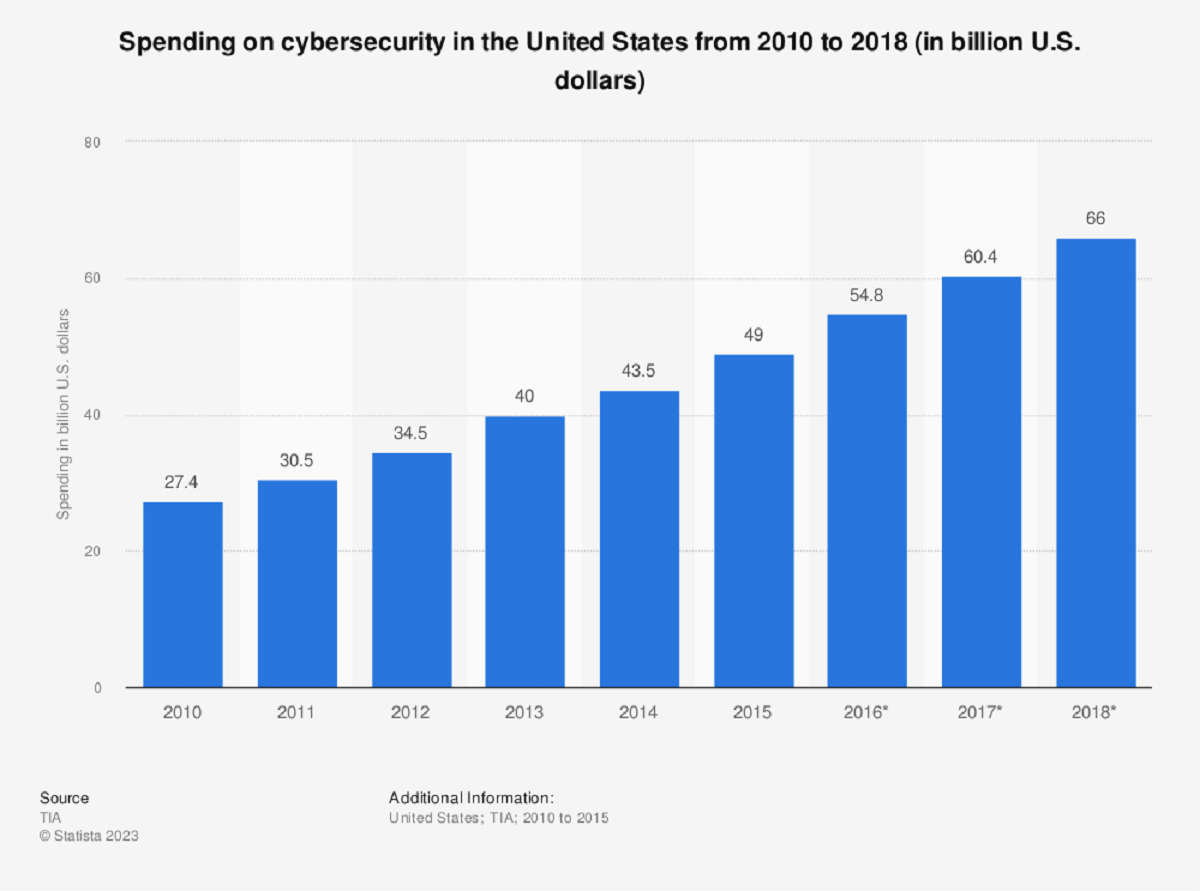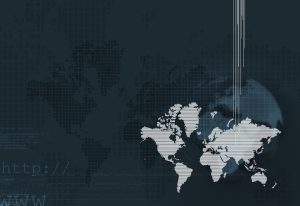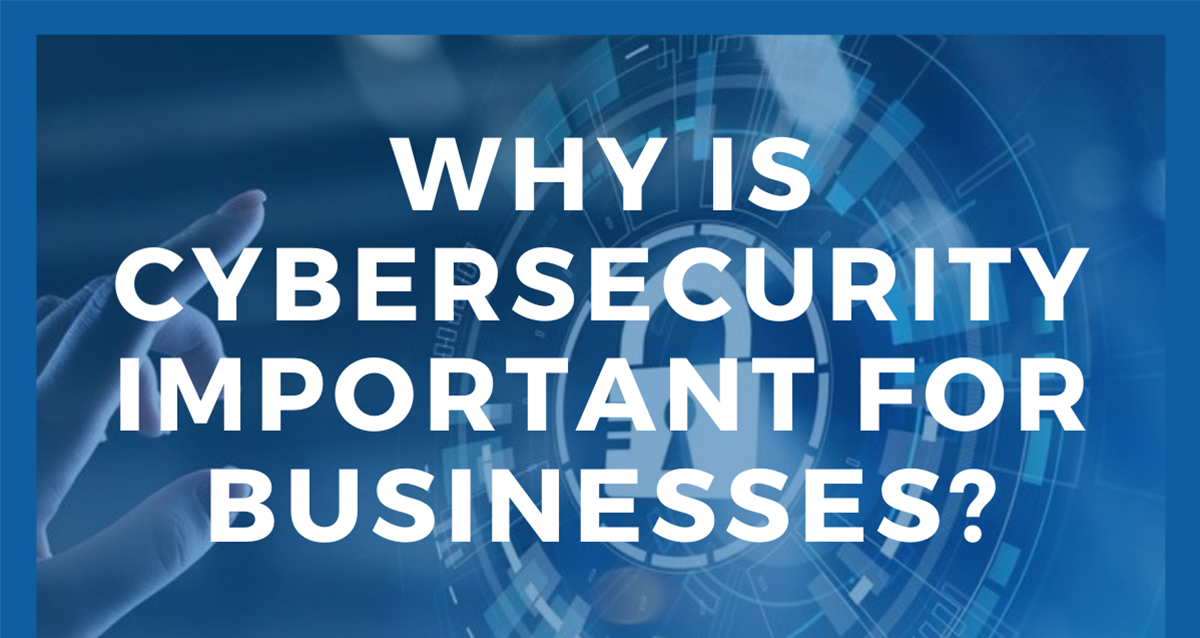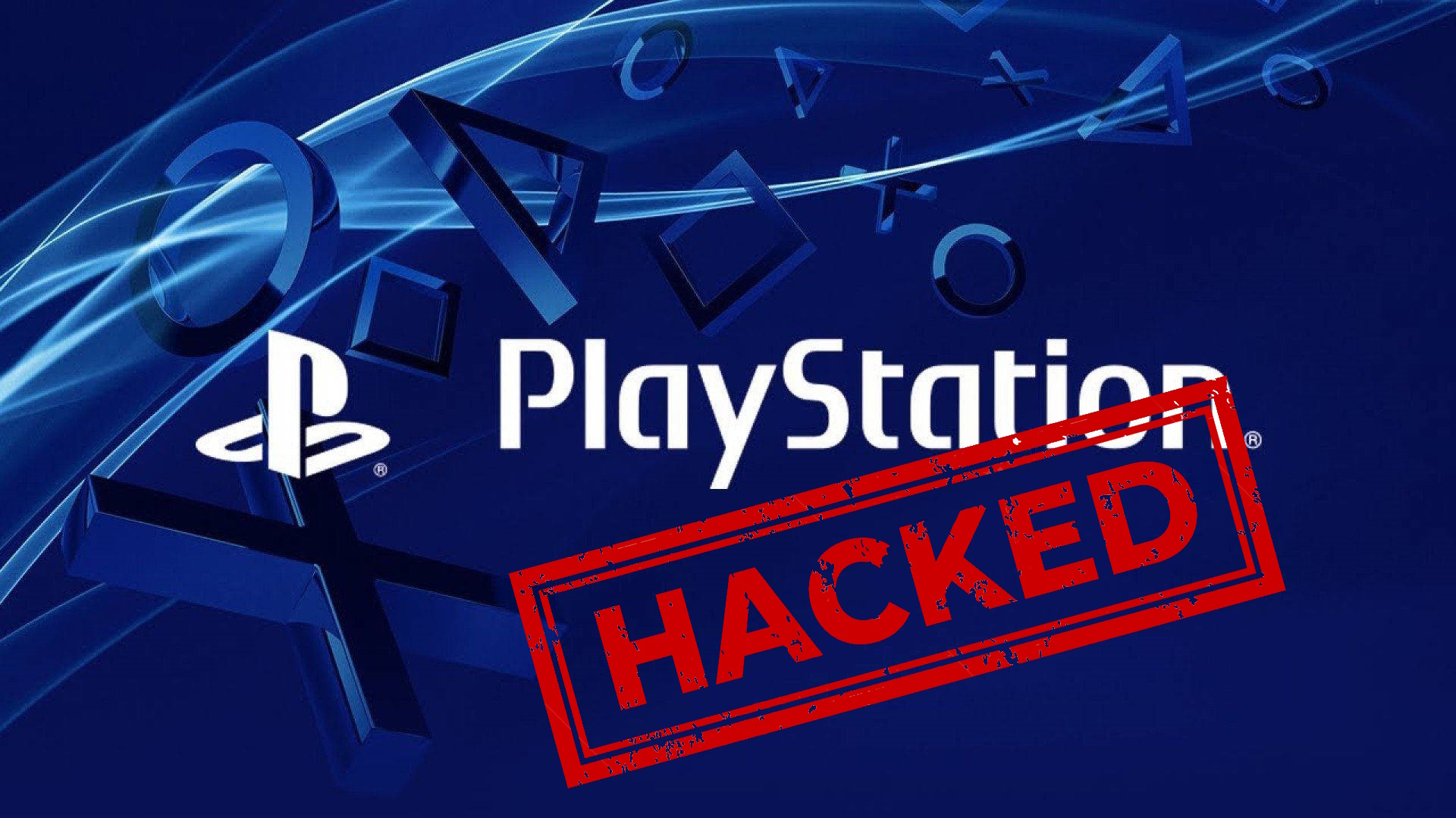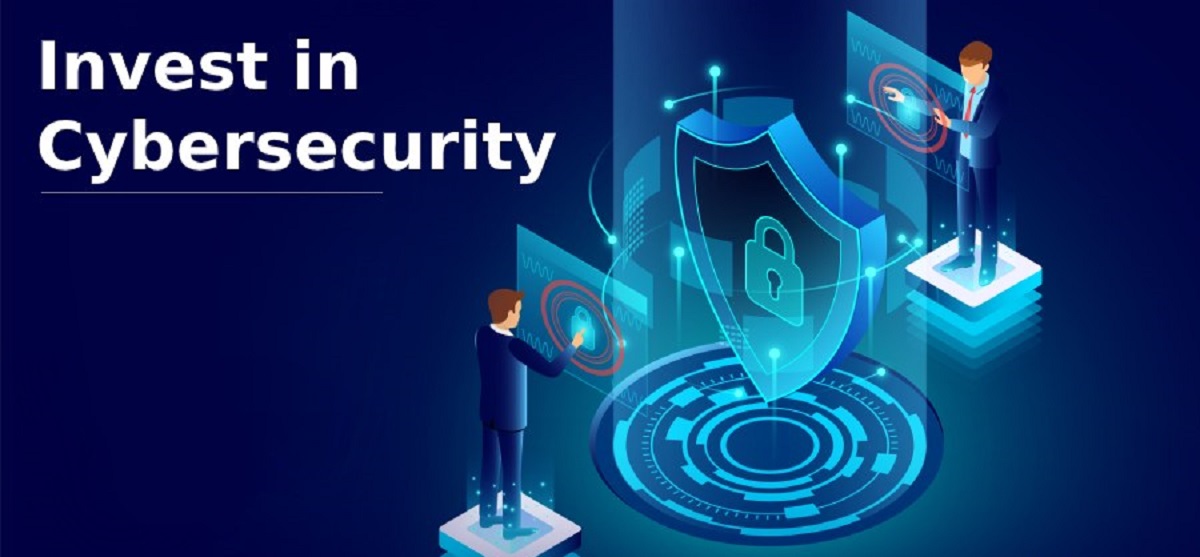Introduction
Cybersecurity has become a paramount concern in today’s digital age. With the increasing threats of cyberattacks and data breaches, companies around the world are investing heavily in protecting their sensitive information. As a result, the cybersecurity industry has experienced tremendous growth in recent years. The demand for cybersecurity solutions and services has paved the way for the establishment of numerous cybersecurity companies globally. These companies specialize in providing cutting-edge technologies and expert guidance to safeguard valuable data.
In this article, we will explore the landscape of cybersecurity companies around the world. We will delve into the major categories of cybersecurity companies and provide insights into their operations and services. Additionally, we will take a closer look at the prominent cybersecurity companies in different regions, such as the United States, Europe, Asia, South America, Africa, and Oceania.
Given the vastness and complexity of the cybersecurity industry, it is essential to stay up-to-date with the latest trends and innovations. Therefore, we will also discuss emerging trends in the cybersecurity industry, highlighting the advancements and technologies that are shaping its future.
By the end of this article, you will gain a better understanding of the global cybersecurity landscape and the significant players in the industry. Whether you are a business owner looking for cybersecurity solutions or simply interested in the field, this article will provide valuable insights into the world of cybersecurity companies.
Major Categories of Cybersecurity Companies
Cybersecurity companies can be broadly categorized based on the type of services and solutions they offer. Understanding these categories is crucial for businesses and individuals seeking the right cybersecurity provider. Here are the major categories of cybersecurity companies:
1. Security Software Providers: These companies develop and offer software solutions designed to protect computer systems and networks from cyber threats. They may provide antivirus software, firewalls, intrusion detection systems, and encryption tools. Examples of security software providers include McAfee, Bitdefender, and Norton.
2. Managed Security Service Providers (MSSPs): MSSPs offer a comprehensive suite of cybersecurity services tailored to the specific needs of businesses. They take care of managing security systems, monitoring networks for threats, and providing incident response services. Some well-known MSSPs include IBM Security, Secureworks, and Trustwave.
3. Consulting and Advisory Firms: These companies specialize in providing cybersecurity consulting and advisory services to organizations. They assess cybersecurity risks, develop strategies, and provide guidance on implementing robust security measures. Companies like Deloitte, Ernst & Young, and PwC fall into this category.
4. Penetration Testing Companies: Penetration testing companies perform ethical hacking techniques to identify vulnerabilities in computer systems and networks. They help organizations identify weak points in their security infrastructure and suggest corrective actions. Notable penetration testing companies include Rapid7, Coalfire, and ImmuniWeb.
5. Incident Response Firms: When a cybersecurity incident occurs, incident response firms come into play. These companies specialize in quickly responding to security breaches, investigating the incident, and providing remediation services. Examples of incident response firms include FireEye, CrowdStrike, and Mandiant.
6. Training and Education Providers: These companies focus on educating individuals and organizations about cybersecurity best practices. They offer training programs, workshops, and certifications to enhance cybersecurity skills. InfoSec Institute, SANS Institute, and EC-Council are prominent training and education providers in the cybersecurity industry.
These are just a few of the major categories in the cybersecurity industry. Each category plays a vital role in protecting businesses and individuals from cyber threats. It is important for organizations to assess their specific cybersecurity needs and engage with the appropriate category of cybersecurity company to ensure comprehensive protection.
Cybersecurity Companies in the United States
The United States is a global leader in the cybersecurity industry, home to numerous renowned cybersecurity companies. These companies offer a wide range of services and technologies to protect businesses, government agencies, and individuals from cyber threats. Here are some notable cybersecurity companies based in the United States:
1. Palo Alto Networks: Palo Alto Networks is a leading provider of next-generation firewall solutions. They offer a range of cybersecurity products and services, including advanced threat detection, network security, and cloud security.
2. Symantec: Symantec is a well-established cybersecurity company known for its antivirus and endpoint protection solutions. They also offer data loss prevention, intrusion detection, and encryption solutions.
3. Cisco Systems: Cisco Systems is a technology conglomerate that provides a variety of networking and cybersecurity solutions. Their cybersecurity portfolio includes firewalls, secure access technologies, and threat defense solutions.
4. CrowdStrike: CrowdStrike is a cloud-based cybersecurity company specializing in endpoint protection and threat intelligence. They are known for their advanced endpoint detection and response capabilities.
5. Fortinet: Fortinet is a global leader in cybersecurity solutions. They provide a wide range of products, including firewalls, secure email gateways, and secure web gateways. Their solutions are designed to protect networks and endpoints from advanced threats.
6. Check Point Software Technologies: Check Point is a leading cybersecurity company offering a comprehensive suite of products and services. They provide firewall and VPN solutions, intrusion prevention systems, and threat intelligence services.
7. FireEye: FireEye is known for its advanced threat intelligence and threat detection capabilities. They provide a range of cybersecurity solutions, including network security, email security, and endpoint security.
8. IBM Security: IBM Security offers a broad range of cybersecurity solutions and services. They provide threat intelligence, identity and access management solutions, and incident response services.
9. McAfee: McAfee is a global cybersecurity company offering an array of products and services. They provide antivirus software, web security, and data protection solutions.
10. Rapid7: Rapid7 specializes in vulnerability management and penetration testing services. They help organizations identify and address security vulnerabilities in their networks and applications.
These companies represent just a fraction of the cybersecurity companies operating in the United States. With the evolving threatscape and growing reliance on digital technologies, the demand for cybersecurity solutions is expected to continue rising, making the United States a hotbed for innovation and development in the field.
Cybersecurity Companies in Europe
Europe is home to a thriving cybersecurity industry, with numerous companies at the forefront of protecting organizations and individuals from cyber threats. These companies offer a wide range of cybersecurity solutions and services, helping to bolster the continent’s security posture. Let’s explore some notable cybersecurity companies based in Europe:
1. Kaspersky Lab: Kaspersky Lab, headquartered in Moscow, Russia, is a global cybersecurity company with a strong presence in Europe. They offer a comprehensive suite of cybersecurity solutions, including antivirus software, endpoint protection, and threat intelligence services.
2. F-Secure: F-Secure, based in Helsinki, Finland, focuses on providing cybersecurity products and services to both consumers and businesses. They offer antivirus software, network security, and vulnerability management solutions.
3. Sophos: Sophos, headquartered in Oxford, United Kingdom, is known for its endpoint security and unified threat management (UTM) solutions. They provide next-generation antivirus, firewall, and encryption solutions.
4. Trend Micro: Trend Micro, based in Tokyo, Japan, has a strong presence in Europe. They specialize in cloud security, network security, and threat intelligence solutions. Trend Micro’s services cater to businesses of all sizes, from small startups to large enterprises.
5. ESET: ESET, headquartered in Bratislava, Slovakia, is a leading European cybersecurity company. They offer antivirus software, endpoint protection, and encryption solutions.
6. Avast: Avast, based in Prague, Czech Republic, is one of the largest cybersecurity companies in Europe. They provide a range of cybersecurity products, including antivirus software, VPN services, and network security solutions.
7. CyberArk: CyberArk, headquartered in Petah Tikva, Israel, has a strong presence in Europe. They specialize in privileged access management (PAM) solutions and help organizations secure their critical assets and prevent cyberattacks.
8. Bitdefender: Bitdefender, based in Bucharest, Romania, offers a wide range of cybersecurity solutions, including antivirus software, endpoint protection, and email security. They are known for their advanced threat detection capabilities.
9. Darktrace: Darktrace, with offices in Cambridge, United Kingdom, is a leading player in the field of artificial intelligence (AI)-powered cybersecurity. They provide AI-driven threat detection and response solutions to organizations across industries.
10. SafeBreach: SafeBreach, headquartered in Sunnyvale, California, also has a presence in Europe. They offer a platform for continuous security validation, allowing organizations to proactively identify and mitigate potential vulnerabilities.
These companies represent the diverse and innovative landscape of the cybersecurity industry in Europe. With the ever-increasing sophistication of cyber threats, companies in Europe are constantly evolving to provide robust solutions that cater to the unique challenges faced by organizations in the region.
Cybersecurity Companies in Asia
Asia is emerging as a prominent hub for cybersecurity companies, playing a crucial role in protecting businesses and individuals from cyber threats. With the rapid growth of digital technologies and increasing connectivity in the region, cybersecurity companies in Asia are at the forefront of innovation and development. Let’s explore some notable cybersecurity companies based in Asia:
1. Qihoo 360 Technology: Qihoo 360, headquartered in Beijing, China, is a leading cybersecurity company offering a wide range of products and services. They specialize in antivirus software, mobile security solutions, and network security products.
2. Tencent: Tencent, based in Shenzhen, China, is a technology conglomerate that provides a variety of services, including cybersecurity. They offer a range of cybersecurity solutions, including cloud security, threat intelligence, and mobile security.
3. Trend Micro: Trend Micro, founded in Osaka, Japan, has a strong presence in Asia. They specialize in cloud security, network security, and threat intelligence solutions. Trend Micro’s services cater to businesses of all sizes, from small startups to large enterprises.
4. AhnLab: AhnLab, headquartered in Seoul, South Korea, is a cybersecurity company that offers a wide range of products and services. They provide antivirus software, firewall solutions, and advanced threat detection systems.
5. Quick Heal Technologies: Quick Heal, based in Pune, India, is one of the leading cybersecurity companies in the country. They specialize in antivirus software, endpoint security solutions, and mobile device security.
6. Cyberoam Technologies: Cyberoam, with offices in Ahmedabad, India, is known for its network security appliances and unified threat management (UTM) solutions. They provide firewall, VPN, and web security solutions.
7. Palo Alto Networks: Palo Alto Networks, headquartered in Santa Clara, California, has a strong presence in Asia. They offer a range of cybersecurity products and services, including advanced threat detection, network security, and cloud security.
8. Baidu Security: Baidu, based in Beijing, China, is a leading internet search and AI company that also provides cybersecurity solutions. They focus on web security, mobile security, and AI-driven threat detection.
9. V-Key: V-Key, headquartered in Singapore, specializes in mobile security solutions. They provide technologies that secure mobile applications and protect against mobile device threats.
10. Securemetric: Securemetric, based in Kuala Lumpur, Malaysia, offers a range of cybersecurity solutions, including two-factor authentication, public key infrastructure (PKI), and identity and access management (IAM) solutions.
These companies showcase the Asia’s growing presence in the cybersecurity industry. With the increasing adoption of digital technologies and the rising number of cyber threats, organizations in Asia are turning to these innovative cybersecurity companies for robust protection.
Cybersecurity Companies in South America
South America is home to a growing cybersecurity industry, with several companies dedicating their efforts to protect organizations and individuals from cyber threats. These companies offer a range of cybersecurity solutions and services, contributing to the region’s cybersecurity ecosystem. Let’s explore some notable cybersecurity companies based in South America:
1. Cipher: Cipher, headquartered in Buenos Aires, Argentina, is a leading cybersecurity company in South America. They specialize in providing managed security services, vulnerability assessments, and incident response solutions.
2. 4iQ: 4iQ, with offices in Santiago, Chile, is a company focused on identity intelligence and digital risk protection. They provide solutions that enable businesses to detect and mitigate identity-related risks in the digital world.
3. Tempest: Tempest, based in São Paulo, Brazil, is a cybersecurity company offering secure communication solutions. They specialize in encryption technologies, secure phones, and secure communication platforms.
4. Aker: Aker, headquartered in São Leopoldo, Brazil, is a cybersecurity company specializing in network security solutions. They provide firewalls, intrusion detection systems, and secure access technologies.
5. Netlabs: Netlabs, based in Lima, Peru, offers a range of cybersecurity services, including penetration testing, vulnerability assessments, and security consulting. They help organizations identify and address security weaknesses in their infrastructure.
6. Trustwave: Trustwave, headquartered in Chicago, United States, has a strong presence in South America. They offer managed security services, threat intelligence, and compliance solutions. Trustwave helps organizations protect their sensitive data and maintain regulatory standards.
7. Kryptus: Kryptus, based in Campinas, Brazil, specializes in cryptographic solutions and secure communication technologies. They provide encryption and key management solutions, ensuring the confidentiality and integrity of sensitive information.
8. Decsek: Decsek, headquartered in Bogotá, Colombia, is a cybersecurity company that focuses on secure IT infrastructure solutions. They offer services such as managed security, security monitoring, and security incident response.
9. Exceda: Exceda, based in São Paulo, Brazil, specializes in web performance and cybersecurity solutions. They provide distributed denial-of-service (DDoS) protection, content delivery networks (CDNs), and web application firewalls.
10. LoJack: LoJack, headquartered in Santiago, Chile, is a cybersecurity company that specializes in tracking and recovery solutions. They offer services to locate and recover stolen devices, ensuring data protection.
These companies exemplify the South American cybersecurity industry’s innovation and commitment to countering cyber threats. As businesses and individuals in the region increase their reliance on technology, these companies play a crucial role in safeguarding valuable assets and ensuring a secure digital environment.
Cybersecurity Companies in Africa
Africa is witnessing a rapid growth in the cybersecurity sector, with several companies dedicated to protecting organizations and individuals from cyber threats. These companies are leveraging advanced technologies and collaborating with international partners to strengthen Africa’s cybersecurity landscape. Let’s explore some notable cybersecurity companies based in Africa:
1. Cyberian Security: Cyberian Security, headquartered in Johannesburg, South Africa, specializes in providing cybersecurity solutions and services. They offer a range of services including risk assessment, incident response, and managed security services.
2. Serianu: Based in Nairobi, Kenya, Serianu is a leading cybersecurity consulting firm in Africa. They provide services such as cybersecurity assessments, vulnerability management, and cybersecurity training.
3. Cyberspace: Cyberspace, based in Lagos, Nigeria, is a cybersecurity services provider catering to organizations across various sectors. They offer services including managed security, security consulting, and security awareness training.
4. Jethro Cyber Security Solutions: Jethro Cyber Security Solutions, headquartered in Pretoria, South Africa, offers a range of cybersecurity services. These include data protection, network security, and security consulting.
5. CyberTech Africa: CyberTech Africa, based in Accra, Ghana, specializes in cybersecurity services and solutions for businesses and government agencies. They provide services such as vulnerability assessments, penetration testing, and security awareness training.
6. CIPHER Africa: CIPHER Africa, with offices in Cape Town, South Africa, is a prominent managed security services provider (MSSP). They offer a range of cybersecurity services including threat intelligence, security monitoring, and incident response.
7. SweepSouth: SweepSouth, based in Cape Town, South Africa, focuses on managed security services, digital forensics, and cybersecurity training. They assist organizations in improving their cybersecurity posture through proactive measures.
8. Micron Informatics: Micron Informatics, headquartered in Nairobi, Kenya, specializes in cybersecurity solutions for small to medium-sized businesses. They provide services such as endpoint protection, backup and disaster recovery, and vulnerability management.
9. DRS Security Consulting: DRS Security Consulting, based in Pretoria, South Africa, offers a range of cybersecurity services. They provide services such as risk assessments, security audits, and security awareness training to help organizations mitigate cyber risks.
10. Simple Cloud: Simple Cloud, headquartered in Johannesburg, South Africa, focuses on secure cloud solutions and managed security services. They provide secure cloud hosting, cloud data backup, and disaster recovery solutions for businesses.
These cybersecurity companies in Africa are playing a vital role in helping organizations protect their digital assets and maintain a secure online presence. As cybersecurity threats continue to evolve, the efforts of these companies are instrumental in safeguarding Africa’s digital landscape.
Cybersecurity Companies in Oceania
Oceania is home to a growing cybersecurity industry, with companies dedicated to defending businesses and individuals from cyber threats. These companies offer a diverse range of cybersecurity solutions and services, contributing to the region’s digital resilience. Let’s explore some notable cybersecurity companies based in Oceania:
1. Tesserent: Tesserent, headquartered in Melbourne, Australia, is a leading cybersecurity company specializing in managed security services. They offer services including network security, threat intelligence, and security testing.
2. Airlock Digital: Airlock Digital, based in Adelaide, Australia, provides application whitelisting solutions, helping organizations prevent unauthorized software and defend against advanced threats.
3. Lastline: Lastline, with offices in Sydney, Australia, is a cybersecurity company that focuses on malware detection and analysis. They provide solutions for network traffic analysis, email security, and threat intelligence.
4. Vectra AI: Vectra AI, headquartered in San Jose, California, has a presence in Sydney, Australia. They specialize in AI-powered network detection and response, helping organizations detect and respond to cyber threats in real-time.
5. Cyber Research New Zealand: Cyber Research New Zealand, based in Wellington, New Zealand, offers a range of cybersecurity services. They provide services such as penetration testing, vulnerability assessments, and cybersecurity consulting.
6. Huntsman Security: Huntsman Security, with offices in Sydney, Australia, specializes in cybersecurity solutions for businesses and government organizations. They provide services such as threat detection and response, compliance management, and security analytics.
7. Secure Code Warrior: Secure Code Warrior, headquartered in Sydney, Australia, focuses on secure coding practices. They offer a platform that helps developers improve their coding skills and build secure applications.
8. Thinkst Canary: Thinkst Canary, based in Cape Town, South Africa, has a presence in Sydney, Australia. They specialize in deception technology, enabling organizations to detect and respond to threats through the use of decoy systems.
9. Macquarie Telecom: Macquarie Telecom, headquartered in Sydney, Australia, is a telecommunications and managed services provider that also offers cybersecurity solutions. They provide services such as secure internet connections, network security, and data hosting.
10. Frazer-Nash Cyber: Frazer-Nash Cyber, with offices in Canberra, Australia, is a cybersecurity consulting firm. They offer services including risk assessment, security governance, and incident response planning for government and defense organizations.
These cybersecurity companies in Oceania are contributing to the region’s cybersecurity resilience by providing innovative solutions and services. With the ever-evolving threat landscape, these companies play a crucial role in helping organizations secure their digital assets in Oceania.
Notable Cybersecurity Companies Worldwide
The cybersecurity industry is teeming with companies that are making significant contributions to ensure the security of digital assets globally. These companies have become pillars of cybersecurity, providing innovative solutions and services to combat the ever-evolving cyber threat landscape. Let’s explore some notable cybersecurity companies from around the world:
1. Palo Alto Networks: Headquartered in Santa Clara, California, Palo Alto Networks is a leading global cybersecurity company. They offer a range of advanced security solutions, including next-generation firewalls, cloud security, and threat intelligence.
2. Symantec: Symantec, based in Mountain View, California, is a well-established cybersecurity company known for its antivirus and endpoint protection solutions. They also provide data loss prevention, encryption, and advanced threat detection solutions.
3. Trend Micro: Trend Micro, a global cybersecurity company founded in Tokyo, Japan, focuses on cloud security, network security, and threat intelligence solutions. Their services cater to businesses of all sizes and industries.
4. Check Point Software Technologies: Check Point, headquartered in Tel Aviv, Israel, is a leading cybersecurity company offering a comprehensive suite of products and services. They provide firewall and VPN solutions, intrusion prevention systems, and threat intelligence services.
5. McAfee: McAfee, a global cybersecurity company based in Santa Clara, California, offers a wide range of products and services. They provide antivirus software, web security, data protection, and vulnerability management solutions.
6. FireEye: FireEye is renowned for its advanced threat intelligence and detection capabilities. Headquartered in Milpitas, California, they offer a range of cybersecurity solutions, including network security, email security, and endpoint security.
7. CrowdStrike: CrowdStrike, headquartered in Sunnyvale, California, specializes in cloud-delivered endpoint protection services. They provide threat intelligence, next-generation antivirus, and managed threat hunting solutions.
8. IBM Security: IBM Security offers a broad range of cybersecurity solutions and services. Headquartered in Armonk, New York, they provide threat intelligence, identity and access management solutions, and incident response services.
9. Fortinet: Fortinet is a global leader in cybersecurity solutions, with a focus on network security. Headquartered in Sunnyvale, California, they offer a wide range of products, including firewalls, secure email gateways, and secure web gateways.
10. Kaspersky Lab: Kaspersky Lab, headquartered in Moscow, Russia, is a prominent cybersecurity company known for its antivirus software and endpoint protection solutions. They also offer a wide range of cybersecurity services and threat intelligence.
These notable cybersecurity companies represent the diversity and expertise of the global cybersecurity industry. With their advanced technologies and comprehensive solutions, they continue to play a crucial role in safeguarding businesses and individuals from the constant barrage of cyber threats.
Emerging Trends in the Cybersecurity Industry
The cybersecurity landscape is constantly evolving, driven by advancements in technology and the ever-changing threat environment. As organizations and individuals become increasingly interconnected, new challenges and opportunities arise in the field of cybersecurity. Here are some emerging trends that are shaping the cybersecurity industry:
1. Artificial Intelligence (AI) and Machine Learning (ML): AI and ML are revolutionizing cybersecurity by enabling more proactive and effective threat detection. These technologies can analyze vast amounts of data, identify patterns, and quickly respond to emerging threats in real-time. AI-powered defenses are capable of identifying previously unknown attacks and adapting their defenses accordingly.
2. Zero Trust Architecture: Traditional network perimeters are no longer sufficient in today’s digital landscape. Zero Trust Architecture takes a holistic approach to security, treating every user, device, and connection as potentially malicious. It enforces strict access controls, continuous authentication, and a principle of least privilege to protect critical assets, even within the organization’s network.
3. Cloud Security: With the increasing adoption of cloud technologies, securing cloud environments has become a critical focus. Cloud security involves implementing measures to protect data, applications, and infrastructure in cloud environments. Key areas of focus include identity and access management, data encryption, and continuous monitoring.
4. Internet of Things (IoT) Security: As IoT devices become more prevalent in homes and businesses, ensuring their security is paramount. The vast network of interconnected devices presents new vulnerabilities and potential entry points for attackers. Strong authentication, encryption, and ongoing monitoring are crucial to protect IoT ecosystems.
5. Mobile Security: Mobile devices are increasingly targeted by cybercriminals due to their ubiquity and the valuable information they hold. Mobile security involves securing devices, mobile applications, and the data transmitted between them. Techniques such as mobile threat defense, app vetting, and secure coding practices are essential in protecting mobile ecosystems.
6. Data Privacy and Compliance: Heightened concerns over data privacy have led to the emergence of stricter regulations, such as the General Data Protection Regulation (GDPR) in Europe and the California Consumer Privacy Act (CCPA) in the United States. Organizations must adapt their cybersecurity strategies to comply with these regulations, ensuring robust data protection, secure data handling, and privacy controls.
7. Threat Intelligence Sharing: The sharing of threat intelligence is becoming more prevalent as organizations recognize the benefits of collective defense. Collaboration between industry peers, government agencies, and security vendors allows for faster and more comprehensive identification and response to emerging threats.
8. Quantum-Safe Cryptography: With the advent of quantum computing, there is a need for cryptographic algorithms that can withstand the computational power of quantum machines. Quantum-safe cryptography aims to develop encryption methods that are resistant to attacks from both classical and quantum computers.
9. Human-Centric Security: Recognizing that humans are often the weakest link in cybersecurity, there is an increasing emphasis on human-centric security. Training and awareness programs help individuals recognize and mitigate social engineering attacks, phishing attempts, and other human-driven vulnerabilities.
10. Cyber-Physical Security Convergence: As operational technology (OT) and information technology (IT) systems become more integrated, the convergence of cyber and physical security is gaining importance. Protecting critical infrastructure and industrial control systems from cyber threats requires a cohesive approach that encompasses both IT and OT security measures.
These emerging trends highlight the dynamic nature of the cybersecurity industry. Staying up-to-date with these trends allows organizations and individuals to proactively address emerging threats and best protect their digital assets.
Conclusion
The cybersecurity industry continues to play a crucial role in safeguarding organizations and individuals from the ever-growing threat landscape. With cyberattacks becoming more sophisticated and prevalent, cybersecurity companies are working tirelessly to develop innovative solutions and services to counter these threats.
From established global leaders to emerging startups, cybersecurity companies worldwide are addressing the evolving challenges of the digital age. They provide a diverse range of solutions, including advanced threat detection, network security, cloud protection, and consulting services.
The industry is witnessing several notable trends that are shaping its future. Artificial intelligence and machine learning are revolutionizing threat detection and response, while zero trust architecture and cloud security are redefining the approach to protect critical assets. The rise of IoT devices and mobile technology necessitates enhanced security measures for these interconnected ecosystems.
Data privacy and compliance are also in the spotlight, with regulations such as GDPR and CCPA driving organizations to prioritize data protection and privacy controls. Threat intelligence sharing, quantum-safe cryptography, human-centric security, and the convergence of cyber and physical security further shape the industry’s landscape.
In regions like the United States, Europe, Asia, South America, Africa, and Oceania, cybersecurity companies are thriving, providing specialized services and technologies. Their expertise helps organizations implement robust security measures and navigate the intricate cybersecurity landscape.
As the cybersecurity industry continues to evolve, there is an increasing need for collaboration, education, and continuous innovation to stay one step ahead of cyber threats. Organizations and individuals must remain vigilant, actively engage with cybersecurity providers, and prioritize cybersecurity measures to mitigate risks effectively.
In conclusion, the cybersecurity industry’s rapid growth and the dedication of cybersecurity companies worldwide reflect the critical importance of protecting digital assets in our interconnected world. The relentless pursuit of innovation and collaboration will continue to bolster the industry and provide innovative solutions to combat cyber threats effectively.







